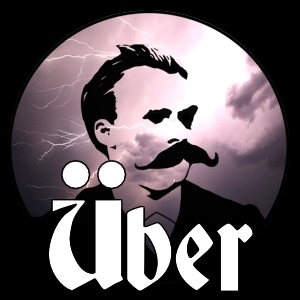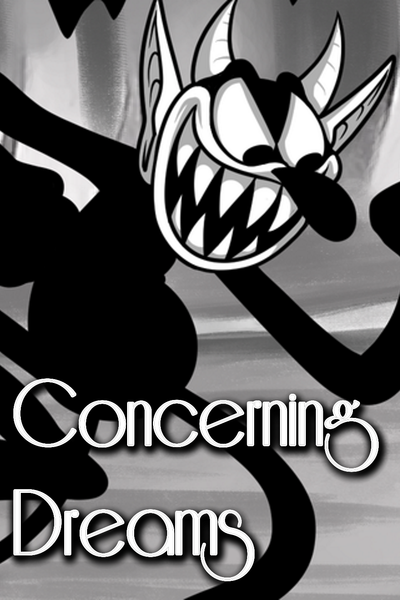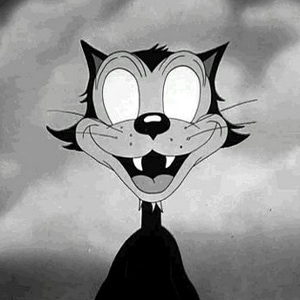Returning to the familiar couch, I pressed play on the VCR and the title card for Socrates & Friends appeared on the fuzzy screen. I first saw this series as a kid when we learned American history. The episode about Christopher Columbus said that he wanted to prove the Earth was round, that he was nice to the natives, and that he discovered America. It turned out none of that was true, but the series on philosophy is much better. This cartoon was about the philosopher and titular character Socrates. In the first episode, Socrates sets out on an adventure to define truths in the town forum of Athens by discussing ideas.
A simple vista of rolling, sage hills and cypress trees fill the frame as a young man in amethyst robes walks by. The same scenery slides behind him over and over in a loop. As he approaches fluted columns and large arches, he finds his way to the town square where a multitude has gathered around.
"The young man has dark hair and even darker eyes." starts the narrator in a pedantic tone. "His shoulders are broad and strong, earning him his nickname Plato. This is Greek for wide, but Plato is a fit man, not a hefty one, and he is smart too. He is a part of the rich, aristocratic families of ancient Greece and should know better than attending the lectures of the scoundrel known as Socrates."
“Socrates! Teach us your wisdom!” Says one of the speaker's close friends and followers, Polemarchus.
The crowd is excited and cheering for their teacher.
“Concerning justice, what is it?” proposes the picaresque Socrates.
“A classic.” The narrator interrupts.
The rowdy crowd is eating out of his hands. Plato makes his way up to the front of the dense crowd where the forum opens up onto the marketplace full of exotic shops and stalls. Socrates stands on a small pedestal where potted plants are normally displayed.
“Socrates!” Plato calls out in vain under the noise of the crowd. “Socrates, I came to warn-”
“Justice is the art which gives good to friends and evil to enemies of course.” replies a student.
This sends a murmur of approval through the crowd of youths. Socrates lets them digest the ideas until one speaks up.
"Justice is nothing other than the interest of the stronger, nee!" Cries out Thrasymachus from a darkened alleyway. He rises out of the shadows and hobbles to the center of the square. “What is right is only what the powerful would deem advantageous to themselves. It is to keep the weak in their place.” he scoffs.
The humble hero takes this remark in stride, then after reflecting on it, returns a rebuke.
“This may be the way justice is practiced in Greece, but surely the idea of justice is something more.” Rebukes the protagonist philosopher. “No matter how it may be practiced in this world is of no consequence to the meaning of the word.”
"Justice!" shouts out the wretched Thrasymachus. "Bah! The meaning of the word... You wish to understand what it means to be just? You are as Diogenes searching for an honest man with a lantern in the daytime. You are a fool."
“What is Justice?” Socrates repeats.
“You can not just keep asking that question. That is ridiculous.”
“It is only ridiculous because you can not define it!” yells one of the students.
“If you define not, then you know not.” Socrates explains.
Thrasymachus becomes livid.
"Maybe the search should not be confined to just one, solitary man then." offers Polemarchus, nervously trying to diffuse the argument when the city guards start to take notice. "Perhaps we should go back to my house and identify justice on a larger scale, across an entire city-state."
“That would be satisfactory.” Thrasymachus relents.
Socrates nods.
I watched that series dozens of times. The plan was to make a story out of Plato's Republic. The book debated how to create the perfect state. Plato was trying to create a Utopian paradise that a philosopher king would rule over. It seemed like a strange topic for a cartoon, but old Walt Disney himself tried to create a perfect city too. In the age of aerospace, when it seemed the future had finally arrived, Disney saw the opportunity to build an 'experimental prototype city of tomorrow' that would fully take advantage of new technology. EPCOT was going to be built from the ground up with the latest innovations in urban planning and engineering. The plan sadly fell through and all that remains today is a theme park based on the idea, a mere geodesic shell of Walt's vision.
Plato's search for perfection was never realized either. His core belief of perfection was that a Realm of Forms existed where ideas lived. These ideas were the perfect versions of all things and reality was only their shadow. Art was then a reflection of reality, a shadow of a shadow. My work would mean nothing to him. Virtual characters inside a computer that couldn't even be touched were shadows four times removed.
The big questions of what is real and what is good were common topics of Plato’s. Obviously, most people could agree with what they believed was good. Life was good, death was bad. Everything that happened in between didn’t fit so neatly into those categories though. Trying to figure out what it meant to be good, if even possible, kept me on nights like those. I couldn’t turn my brain off. I only fell asleep eventually when my train of thought blended into abstract dreams and then I went under. Sometimes I didn't even sleep and the train broke down on the tracks right at the tunnel where I was left in a purgatory of broken thoughts.











Comments (0)
See all